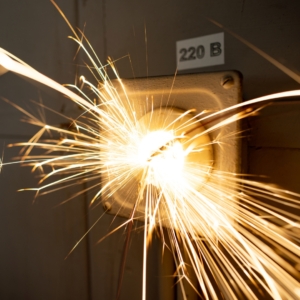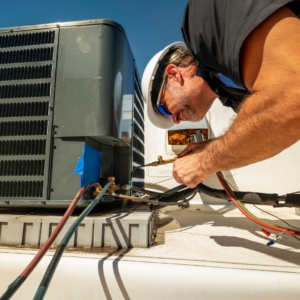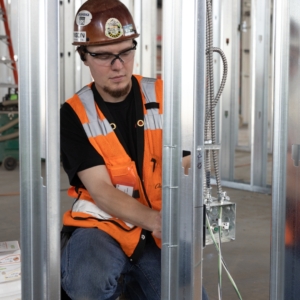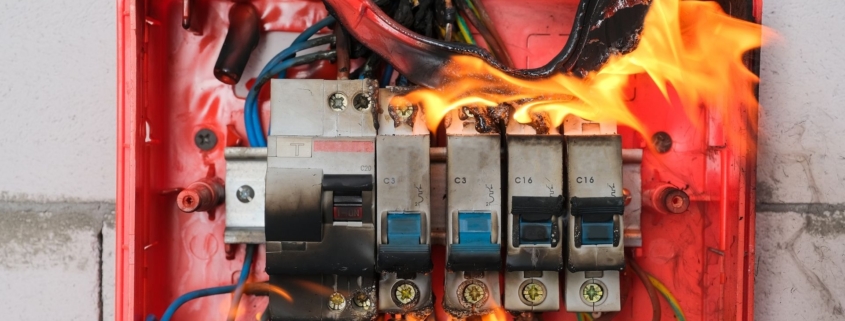Electrical Circuit Overload: A Business Owner’s Guide to Avoiding Downtime
Electrical circuit overloads can halt operations and result in lost productivity for businesses. It is a serious business risk that can lead to failing equipment, safety hazards, and costly downtime. Without knowledge of your business’s electrical system, you’re at risk of circuit overloads. Keep your business powered safely and reliably with this guide to electrical circuit overload.
We’ll explain what electrical circuit overload is, highlight the common causes, and share how to avoid downtime from electrical issues in commercial settings.
What is Electrical Circuit Overload?
A business’s electrical system is made up of circuits. When an electrical circuit is overused, the system’s safety features, such as circuit breakers, are triggered to prevent overheating or other damage. A circuit overload happens when more electricity is run through a circuit than it can handle. Circuits have voltage and amperage limits, corresponding to the amount of electrical current they can carry safely.
Electrical overload is a serious business risk and can cause: 
- Safety hazards: When overloaded circuits are left unattended, they can pose fire risks, lead to employee injuries, and create liability concerns for businesses. Poor electrical conditions can also impact the value of your commercial property.
- Equipment damage: An overloaded circuit can lead to overheating, short circuits, and premature equipment wear.
- Downtime and lost productivity: Overloaded circuits can cause business power outages and costly downtime.
Common Causes of Electrical Circuit Overload in Businesses
There are a handful of common causes of electrical circuit overload in commercial properties, including:
- Outdated or undersized wiring and panels: Electrical panels that are outdated or undersized for commercial use commonly cause circuit overloads.

- Too many high-powered devices on one circuit: When several industrial or office devices are connected to a single circuit, they can draw more electricity than the circuit can handle.
- Seasonal spikes in usage: For example, in summer, heavy HVAC use can cause electrical circuit overload by drawing too much power at once.
- Poorly maintained or DIY electrical systems: An electrical system that wasn’t professionally installed commonly results in circuit overloads due to poor wiring or inadequate maintenance.
How to Prevent Electrical Overload in Your Business’s System
Follow these steps to prevent electrical overload and avoid costly downtime for your business.
Schedule Regular Electrical Inspections
Businesses should schedule professional electrical inspections at least annually, especially for companies with high energy demands. Regular electrical inspections ensure that your business’s electrical system operates safely and efficiently throughout the year.
Invest in Proper Circuit Design
Proper circuit design is essential to preventing electrical overloads. Avoid reliance on extension cords or makeshift solutions to maintain the integrity of your electrical system. A professional commercial electrician can assess your current system and develop a plan to meet your higher capacity needs.
Monitor & Balance Electrical Loads
Another important key to preventing electrical overload is monitoring and balancing loads appropriately. A professional electrician can install load monitoring tools to help you keep an eye on electrical loads. Additionally, train staff to recognize the warning signs of electrical overload, including dimming lights, warm outlets, and tripped breakers.
Develop a Maintenance Schedule
Businesses must develop a preventative maintenance schedule to check breakers, outlets, and equipment. Regular inspections not only catch problems early but also extend the life of your electrical system. Ensure that breakers are functioning properly and do not show signs of wear. Inspect outlets for discoloration or warmth. Verify that equipment isn’t drawing excessive power to prevent straining circuits. Remember to log maintenance to track patterns and recurring issues.
Contact Commercial Electricians Near You
If your business needs support with its commercial electrical system, Powering Pacific Northwest (PPNW) can help. Here, you’ll find licensed and bonded electricians and electrical contractors who are experienced in commercial work and understand the demands of complex systems.
Professionals in the PPNW network bring expertise in load balancing, routine maintenance, circuit overload prevention, panel upgrades, energy efficiency improvements, and more. They’re equipped to help businesses reduce downtime, stay compliant with local codes, and ensure safe, efficient electrical operations.
Find a contractor today.



